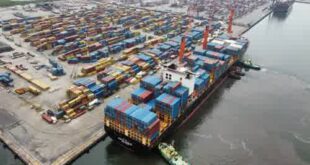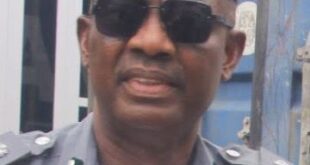Marine pollution in the Niger Delta and the South South and South East in general has continued to be an issue of growing concern to the maritime sector and the Nigerian Government.
In a bid to combat this increasing pollution of the waterways and general marine environment in the South South and South East regions, the Nigerian Maritime Administration and Safety Agency (NIMASA) recently embarked on a sensitization of stakeholders and communities in the area.
Setting its goals on pollution awareness and remediation procedures, the agency organized a 2-day seminar in Port Harcourt on the theme, ‘Environmental Awareness and Remediation Training.’
NIMASA’s head, Marine Environment Management, Dr. (Mrs.) F.C. Mogo, in a speech at the event, noted that the agency is saddled with the responsibility of sustaining safe, secure shipping, cleaner oceans and enhanced maritime capacity.
“In order to accomplish the above mentioned mandate, it is required that the marine environment is fully monitored and kept free of pollution,” adding that this has made manifest the need to professionally train officers of the agency, stakeholders and host communities on the impact of pollution on the marine ecology and the need to prevent and remediate already impacted areas within the marine environment.
“In line with the aforementioned, the management of NIMASA ably led by Dr. Dakuku A. Peterside has approved a 2-day Environmental Remediation Awareness Training. The training is aimed at building the capacity of the participants on the concept of environmental remediation and modern remediation techniques,” she said.
Lead consultant at the event, Prof. Chibuogu Eze, told our correspondent that “pollution is increasing globally, and in Nigeria, marine environment,” adding that “remediation is about what to do with the pollution when they have occur. So this is just awareness training, so that we know what we are expected to do.”
He said the programme was organized in three zones, noting that “what we are doing here is the Eastern zone. So people from the East and the South South are here.
“We have done the Western zone. People from the West were there. It was in Lagos. Next week we are also going to Warri to do for the Central zone. So, if you don’t fall into this zone, you fall into the other zone,” he said.
Speaking on the content of the 2-day lecture, Prof. Eze noted that “what happened today is that everybody understood what the environment is, particularly the marine environment. We discussed about the possible sources of marine pollution, and whether there are regulations that govern that.
“There was a topic taken by a qualified person, a prof. and a retired commodore.
“We also looked at the legislative framework, and also tried to see how to assess the contaminated sites, which was taken by Dr. Kenneth Aron. Tomorrow, we will be looking at the remediation proper. The technologies we use in remediation. And we will also be having a practical demonstration of how to use some of the clean-up equipment,” he said.
On whether there was reference to the remediation project going on in Ogoniland, Prof Eze said “We talked about it often, and made references to the HYPREP activities in Ogoniland. We looked at the contamination cites in Ogoniland and also the remediation process, as case studies. But that is not the theme of this workshop.”
 PH Mundial – Port Harcourt Online Newspaper News Across The Region
PH Mundial – Port Harcourt Online Newspaper News Across The Region



